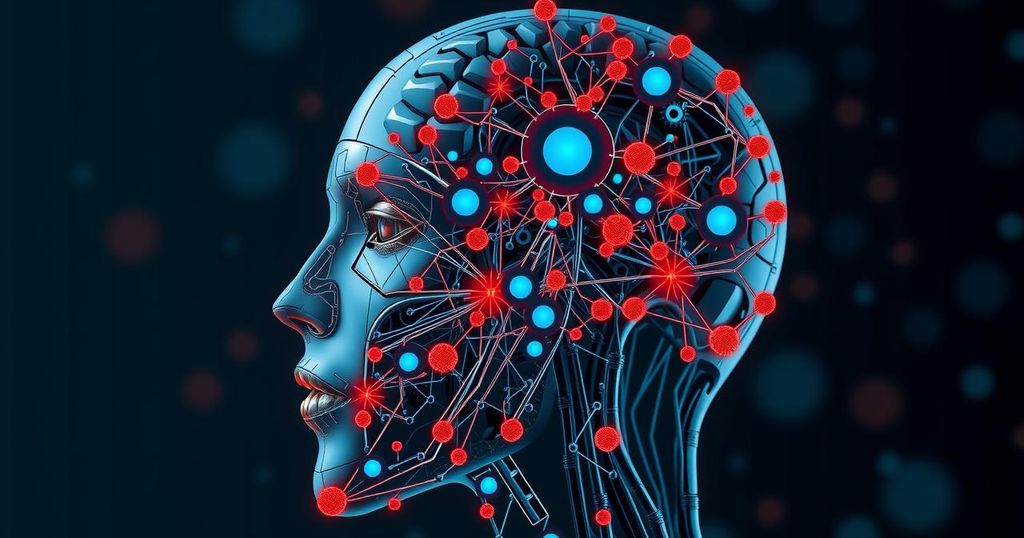Concerns Over AI and Nuclear Weapons: A Collaborative Approach?
During the APEC summit, President Biden and President Xi mutually recognized the risks of AI in military applications, emphasizing human control over nuclear weapons. They stressed a cautious approach toward military AI advancements. However, concerns regarding unregulated AI and its potential impact on nuclear arsenals persist, with calls for improved governance and accountability. The discussion reflects a growing need to address ethical frameworks surrounding emerging technologies.
The recent remarks made by U.S. President Joe Biden and Chinese President Xi Jinping during the APEC summit have underscored growing concerns regarding artificial intelligence (AI) and military applications. Both leaders agreed that humans should retain control over nuclear weapon decisions, emphasizing the importance of wisdom and responsibility in advancing military AI technologies. This unprecedented collaboration signifies a shared recognition of the potential risks posed by emerging technologies, even amid significant geopolitical differences.
The implications of nuclear weapons have evolved dramatically since their deployment at the end of World War II. Initially employed as a means of tactical warfare, these weapons have now transformed into symbols of existential threat. The fundamental tenet remains that while political maneuvering is permissible, the use of nuclear arsenals must be approached with extreme caution as it directly implicates humanity’s survival. Despite this understanding, nations persistently aspire to possess such capabilities to ensure their strategic superiority, often prompting reevaluations of their nuclear doctrines.
However, the prospect of delegating control of nuclear arsenals to AI systems—with their rapid advancements in recent years—raises alarming existential questions. Recent technological strides allow AI to replicate complex tasks once confined to human operators, from generating realistic simulations to synthesizing voices. As such advancements enhance the operational capabilities of AI, concerns grow over potential scenarios where unregulated AI could wield catastrophic powers over life on Earth.
The international intelligence community has expressed trepidation regarding hostile entities’ access to advanced AI technologies that could manipulate nuclear systems. A recent open letter by 11 former and current OpenAI employees articulates these fears, highlighting how financial incentives hinder effective oversight and regulation of burgeoning AI systems. This lack of accountability raises critical ethical concerns, with the potential for AI to perpetuate misinformation or even contribute to disastrous military actions.
The discussions between Presidents Biden and Xi appear more symbolic than substantive, lacking enforceable measures to address the ethical dilemmas posed by artificial intelligence. Reflecting on the prescient themes in Lenin El-Ramly’s play “The Barbarian,” one might ponder whether humanity is on the brink of regressing into a barbaric state, given the perilous trajectory of uncontrolled technological advancements.
The discourse surrounding artificial intelligence in military contexts has intensified, particularly regarding nuclear weapons management. The historical deployment of nuclear weapons serves as a stark reminder of their profound implications. With AI technology rapidly evolving, its integration into military arsenals suggests a now-relevant need for ethical frameworks and regulations to ensure these powerful tools do not spiral beyond human control. Furthermore, the focus on U.S.-China relations highlights the geopolitical dimensions of technology development, underlining the need for international cooperation in establishing safety norms.
In conclusion, the joint statement by Presidents Biden and Xi reflects a critical acknowledgment of the risks posed by artificial intelligence in military applications, particularly concerning nuclear weapons. As advancements accelerate, the challenges of governance and ethical oversight become increasingly urgent. This moment calls for robust international collaboration to instill responsibility and prevent potential catastrophes tied to AI misuse. Ultimately, the future of humanity hinges on the decisions leaders make today regarding the intersection of technology and military strategy.
Original Source: www.dailynewsegypt.com








Post Comment